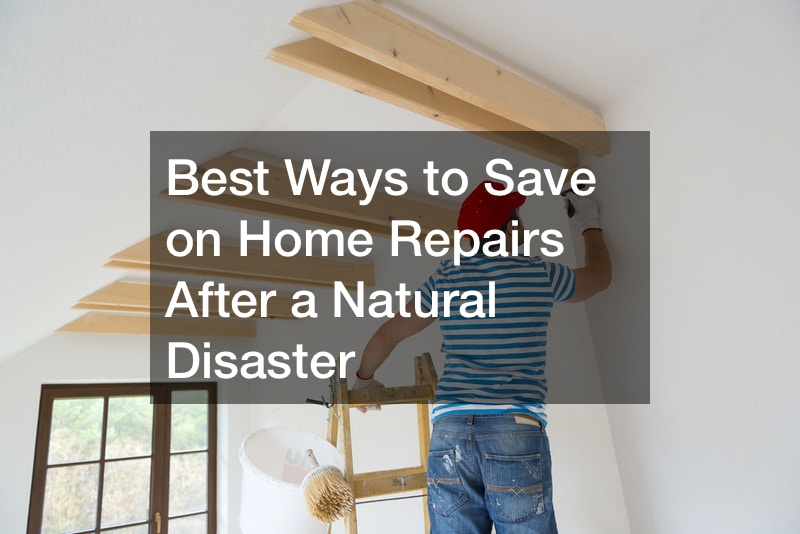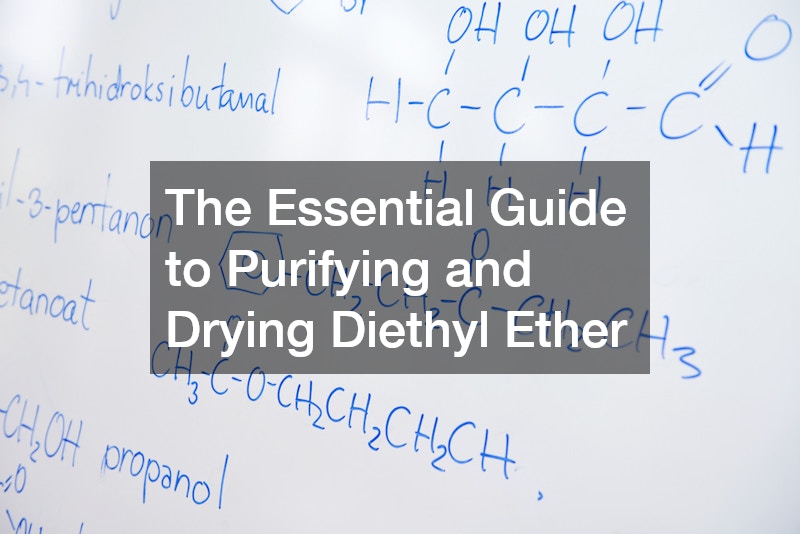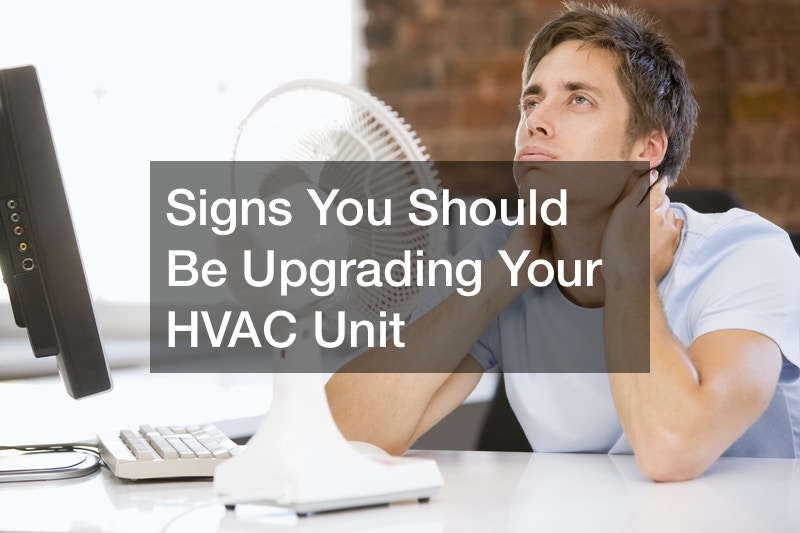
What are the best ways to save on home repairs after a natural disaster? Understanding how much does it cost to repair a home can help you when a disaster happens. A natural disaster can leave your home slightly damaged or destroyed. Choosing which repairs one can do on your own and leaving what is best for professionals will determine how much finance you can save. Below are some of the best ways to save on your home repairs after a natural disaster:
Delay Repairs Until After Insurance Claims Have Been Settled
One of the best ways to save on home repairs after a natural disaster repairing right away including the stucco repair, until your claim has been settled. Insurance should pay for all damage caused by the disaster. To ensure that you do not overpay (or end up with very low compensation), avoid making any temporary fixes before your claim has been resolved.
Also, an idea of how much does it cost to repair a home will help you to know the amount to be compensated. Remember that many insurance companies will only cover repair costs if the backbone structure of your home is still intact; collapsed or badly damaged structures may require rebuilding from scratch, which could cost considerably more repairing what is already standing (and further incentivize taking on these larger reconstruction projects after insurance claims have been settled).
Before you make any home improvements, such as installing replacement windows, contact your insurance company to determine what they will (and will not) cover. Suppose the insurance company has sent out a claim inspector. In that case, it is not appropriate for you to start making repairs until that person has had an opportunity to assess the damage. Keep in mind with the knowledge of how much does it cost to repair a home, the insurance adjuster withholds their approval of your repair plans/cost estimates, then no work can legally be done.
Suppose you are working within the terms of your policy and have submitted all the required documentation to file a claim. In that case, you should expect your insurer to provide reimbursement for expenses associated with fixing up your house. However, since insurance companies tend to deny many claims after payment is made, we recommend that you proceed cautiously and do not start moving forward until you are certain that the claim will not be rejected.
Use One Contractor for All Phases of the Restoration Process

Knowing how much does it cost to repair a home, most of the best ways to save on home repair after a natural disaster are overlooked, such as using one contractor for all phases of repairs of your emergency restoration services or general home repairs. If you are doing some repairs yourself and hiring a tree removal company to do others, do not use different contractors for each job.
Make sure that all workers (including any subcontractors they hire) are on the same page with regard to what needs to be done and when it must be finished. By creating continuity between your efforts and those of third parties, you can save yourself headaches later on by tracking down plumbing service firms or electricians who do not know where they have left off, etc.
If you hire a contractor who fails to finish their work, do not pay them until they make repairs: Many restoration companies are reputable enough not to pull anything underhanded, but some unscrupulous ones will take your money and run (i.e., leave your home in worse condition than when they started). A good way to protect yourself against this is by withholding final payment until all agreed-upon repairs have been made. Be keen to inspect the foundation repair and any service given to you during a home improvement project.
Look Into Low-Interest Government Loans

Researching will help you understand how much does it cost to repair a home when seeking roofing contractors to help with your home repairs after a natural disaster? Low-interest government loans are one of the best ways to save on home repairs after a natural disaster. Homeowners who meet certain criteria may be eligible for loans that have very low-interest rates. Before taking these out, learn the steps required to ensure your eligibility (usually, you must own your home privately, without a mortgage).
Ensure your insurance company knows about them if you have made any exterior modifications to your property (e.g., shoring up overhanging eaves over the garage or gutter replacement). Any unapproved work could invalidate coverage for this incident or result in redundant expenses if the insurer later changes their mind and decides not to reimburse for your efforts.
Don’t Make Any Permanent Fixes Until Getting More Information on Necessary Repairs
Another thing to add to the list of best ways to save on home repairs after a natural disaster is holding the permanent fixes until you obtain more information on the required repairs. If you know what needs to be fixed but are unsure how to do it, consult with an expert or find another way of obtaining independent advice before starting work.
For instance, if one type of foundation repair is likely needed after a mudslide, but you are unsure which method to use, get at least two opinions before committing to anything. By waiting until all details are sorted out, you will have the knowledge of how much does it cost to repair a home. You can avoid expensive mistakes that will end up costing more money in the long run.
When pulling a permit, look into alternative ways to certify property: You cannot pull a building permit without first passing an inspection by a county official. This individual will usually only approve minor modifications (i.e., those that do not change the layout of your house or violate local safety codes).
However, if you want to upgrade something major (such as repairing flood damage), you can act ahead of time and apply for a ‘certificate of equivalency’ before the fact. Note that this process typically takes longer than the inspection procedure since it requires checking your property’s history.
Your insurance company may have a clause that prevents any repairs from being made until the claim has been paid out in full. If so, any upgrades/repairs such as heating repairs that you make before receiving their reimbursement could invalidate your coverage for this particular incident.
Learn About Various Do-It-Yourself Rebuilding and Repair Techniques

DIY projects are one of the best ways to save on home repairs after a natural disaster. There are plenty of good books out there on this subject, as well as helpful tips from friends or neighbors who have been through the process before. Learning more now can be a big help when it comes time to make important decisions regarding your reconstruction budget.
Be careful not to damage anything while cleaning up: A busted water pipe can wreak havoc on your property if left unattended (leaking water can cause drywall and wood beams to rot), so shut off the source of water as soon as possible. You may also want to take precautions when removing debris, i.e., wear eye protection since many forms of construction waste are hazardous materials (such as asbestos).
Get Quotes From at Least Three Different Providers for Any Necessary Work
It does not hurt to get an additional estimate to confirm that you are getting a fair price, especially if you already have a great deal previously secured. If
Get free quotes from at least three different providers: it would be nice if all home repair service professionals offered their services for free, but unfortunately, this is not the case. Although there are exceptions out there (such as friends or family members who are willing to help out), you will still have to pay someone for their work eventually.
This means it is generally best for homeowners to take advantage of multiple price quotes before selecting a contractor. By getting at least three estimates per job, they can compare and contrast what each provider has to offer. If you find the same services are being offered at different rates, try finding out if there is some way to discount them (e.g., buy so many linear feet of new siding, and they will drop the price by x%).
Looking for hidden costs is one of the best ways to save on home repairs after a natural disaster. Repairs are not always as straightforward as you might hope. There may be various fees that are not apparent until afterward, such as travel or disposal charges. Once you have a list of quotes in hand, review each one with intense scrutiny. The last thing you want is to have an unpleasant surprise when it comes time to pay your final bill!
It is not uncommon for homeowners to only get one estimate in writing before selecting a contractor; after all, there is not much incentive to spend time seeking out multiple bids when you already have an idea of what the final price will be (even if it is slightly higher). However, having more than one cost estimate can help give you peace of mind, especially if you are on a tight budget and want to make sure they are within your price range.
Plus, there may be some slight differences between each bidder that further narrow down your choices, or perhaps none match up quite right at all, which would then require some soul-searching about whether or not the price differences are worth the discounts.
Shop Around for the Best Deals on Construction Materials

Teach yourself how much does it cost to repair a home. This is one of the best ways to save on home repairs after a natural disaster. Shopping around for low prices will likely save you a bit here and there across all phases of your construction project. It can even improve your chances of obtaining a few discounts from those providers who view repeat customers as profitable investments.
The best way to find the lowest costs for any required materials is by making your list of suppliers. Search for various providers within your area who offer the specific products you need, then compare their prices with one another before making a purchase.
Keep All Receipts and Records, as You May Be Eligible for Tax Deductions
In some cases, home repairs resulting from natural disasters are eligible for federal tax breaks. To qualify, keep excellent documentation of all the relevant records and consult with an accountant on how to take advantage of these tax breaks when filling out your annual return.
If you are looking for more information about how much does it cost to repair a home, check out the relevant website. In general, these deductions are great for anyone trying to make a habit of cutting costs wherever possible. This usually encourages homeowners to invest in long-term solutions that save them money over time (e.g., repairing rather than replacing your furnace or roof).
Losing your home or favorite possessions in a natural disaster is awful enough without having to deal with an incompetent or unsavory repair company at the same time.
If Hiring a Contractor, Make Sure They Are Licensed to Do the Work
Before committing to using any given firm, check their credentials for licensing and learn about any complaints filed against them in the past (and whether these have been resolved).
When determining how much does it cost to repair a home, many policies will not cover work done by unlicensed contractors (or charge you more if they do), and it is best to abide by these restrictions when hiring someone to perform home improvements or repairs; doing otherwise can present some serious risks (e.g., accidents resulting from faulty installation).
Before hiring anyone, check their references (especially those who say they have dealt with similar disasters in the past or other clients in your area). Make sure that any claims about their expertise are valid (e.g., compare licenses/certifications). It is also important to check for legal issues involving bankruptcy, lawsuits, tax liens, etc. If someone makes an offer that seems too good to be true, it probably is.
The first step in hiring a good contractor is to tell whether or not they have an established history of reliable workmanship. If possible, it is generally preferable to hire contractors with positive online reviews (i.e., testimonials from past customers). However, even this method is not foolproof; it can be easy to fabricate glowing reports about oneself (especially if they are posted anonymously), so try finding out if any unresolved complaints may call their character into question.
Energy-Efficient Appliances
When it comes to how much does it cost to repair a home after a disaster, many homeowners sometimes forget the need for energy-efficient appliances, such as heating and cooling systems. Not only will these items reduce your utility expenses, but they will also help to protect the environment. If you are replacing your appliances anyway, it is often very affordable to invest in energy-efficient options that can save you much more than their upfront cost over time.
Large areas of glass are particularly prone to damage in hurricanes, tornadoes, and earthquakes. Small pieces of debris will often get caught between the window panes and stick out like daggers if you try to open or close them. It only takes one loose piece of glass to ruin an entire windowpane. The good news is that there are several options for energy-efficient windows.
The process of owning a house is crucial when you need to know how much does it cost to repair a home. Ranging from mortgage companies to insurance companies, it needs the know-how to ensure you make the right choices. In addition to this, it is important to be keen on home services and service providers you choose to work with to ensure your house is well maintained and in the right condition. With tips on the best ways to save on home repairs after a natural disaster, you are set to keep your house functional once again.



